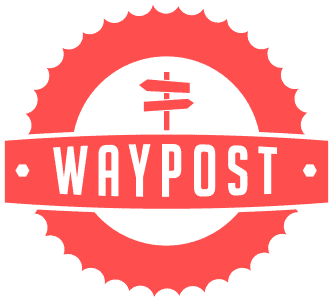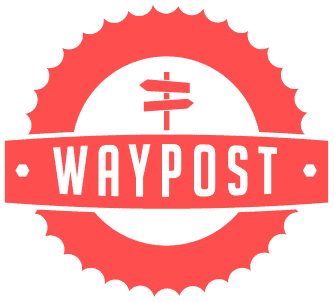
How Manufacturers Can Benefit from Data-Driven Marketing
November 11, 2024
Marketing Automation for Manufacturers – A Comprehensive Guide
November 13, 2024Competition is one of the biggest factors influencing PPC costs today.
In highly competitive industries, clicks can cost hundreds of dollars, while in lower-competition niches, you might be paying just a few dollars per click. Yet, many advertisers or even PPC agencies don’t take the proper time to understand and dive into their Google Ads auction insights. Naturally, they wonder: What drives my cost per click, what is my Google Ad cost, and why am I paying more than my competitor?
Google Ads runs on an auction-based, PPC bidding system. But here’s where it gets interesting: It’s not always the highest bidder that wins. Think of it like an art auction—it’s not just about who has the biggest wallet; it’s also about who has the best reputation and approach. The bidder with the most polished strategy and presentation often comes out on top, not just the one willing to pay the most.
Let’s break down how the Google Ads auction works.
What Happens in the Ad Auction?
Each time you perform a search, Google pulls together all the ads that match your query based on their targeted keywords. Then, Google eliminates any ads that don’t meet the criteria to compete. From the remaining ads, the system selects those that meet the Ad Rank threshold—taking into account factors like bid amount, ad quality, and how well the ad aligns with the user’s search intent. This determines which ads appear on the Search Results page and in what order.
Now, imagine this entire process happens every single time you search for something.
What Impacts the Google Ads Auction?
Google Ads relies on six key elements to determine your performance in the ad auction:
1. Your Bid: How much are you willing to pay?
At its core, advertising is a business, and Google Ads aims to make profits for both you and itself. Advertisers like you can control how much they’re willing to spend per day or per keyword. While you’ll almost always pay less than your maximum bid, this limit gives Google Ads a clear idea of your goals and resources.
2. Ad Quality: How well do your keywords, ad, and website serve the search query?
Ad quality plays a big role in the auction, and it can even help you outperform competitors with higher bids. Google uses a Quality Score to evaluate how well your ads and landing page align with user search intent, assigning a rating from 1 to 10 for each one of your keywords.
There’s no magic formula for a perfect Quality Score. It requires a strong alignment between your keywords, ad copy, and website content. Through continuous PPC analysis, testing, and optimization, you can improve your score and perform better in the ad auction.
3. Expected Impact: How well is your ad predicted to perform?
With access to vast amounts of data and historical trends, Google Ads can predict how well your ad will perform in response to a search. It evaluates your ad’s relevance, estimates the expected click-through rate (CTR), and assesses how prominently your ad will appear on the Search Results Page (SERP).
Your ad assets play a crucial role in boosting your ad’s prominence. Utilizing assets like phone numbers, images, location, and sitelinks can significantly improve your CTR and overall Expected Impact, which may reduce your auction costs.
4. Ad Rank Threshold: Are You Eligible to Compete?
Ad Rank is one of the most crucial elements in Google Ads. First, it determines whether your ad is eligible to enter the auction. Then, it’s used again to decide your ad’s position in the ranking. If your bid is too low, or other factors fall short, your ad won’t pass the Ad Rank threshold, meaning it won’t even get the chance to compete.
Beyond your bid, factors like ad quality and ad position are key in determining Ad Rank. However, user signals, search intent, and the nature of the query also weigh heavily in the decision.
5. Context of the Search: Matching Time, Place, and User Intent
The fifth key element of the ad auction is context. Factors like the user’s location, device, and the specific topic of their search can significantly influence the value placed on your ad. When crafting your ad copy and designing your landing page, it’s important to consider these contextual details. Is your ad meant to target users at a specific time of day, on a particular device, or in certain locations?
For example, a user searching for an emergency plumber has a very different need from someone researching a complete plumbing overhaul after buying a new home. Your ad strategy should always account for the context of the search to ensure you’re delivering the right message at the right time – the core of inbound marketing.
6. Competition: Who Are You Up Against?
Lastly, not all auctions are created equal—some are far more competitive than others. In a typical auction, you might be up against 5 to 10 competitors, but it’s not uncommon to see 20 or more. If you see fewer than 5 competitors in your Google Ads auction insights report, consider yourself fortunate. But if you’re facing more than 20, it may be time to reassess your ad strategy and PPC bidding strategy, especially if you’re competing with major players like Amazon.
Assessing My Ad Auction Performance
While you can’t see every individual auction, Google Ads provides insights into your overall performance through the Ad Auction Insights report. One key metric you’ll find there is your impression share.
In the world of PPC, impression share is “the percentage of impressions that your ads receive compared to the total number of impressions they could potentially get.” This metric is an excellent way to gauge your ad’s potential reach and identify opportunities to improve—whether by increasing your budget or enhancing your ad quality.
Make sure to always request this metric from your PPC agency to get a full view of your performance.
As you can see, Google Ads can be costly, but there are ways to optimize your spending. There’s no one-size-fits-all solution; both your website and ads need to reflect quality and a deep understanding of your target audience’s needs to achieve the best results in the ad auction. And no matter what, always review your Google Ads auction insights to be aware of your competition.
Commit to quality by partnering with Waypost Marketing. We help advertisers like you navigate the paid advertising landscape and make every advertising dollar count.








